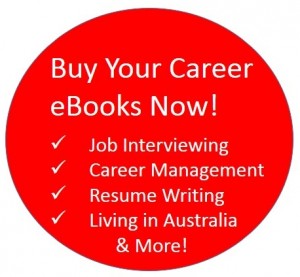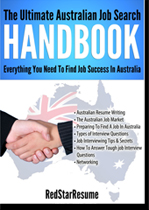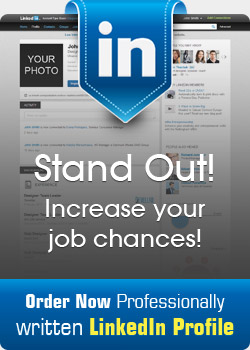 In the last decade, job seeking has changed and competition for every role is more competitive than ever. The prosperous decade of the 1990s, when jobs were plentiful and money (not to mention credit) was seemingly free flowing, failed to give way to an equally prosperous 2000s. Individuals seeking employment in this market are finding it difficult to do so, mostly because jobs have disappeared, having been shipped overseas or completely phased out. (Does anyone remember the door to door salesmen selling encyclopedia sets!) Job seekers are finding that they must be more strategic then ever in their search for employment.
In the last decade, job seeking has changed and competition for every role is more competitive than ever. The prosperous decade of the 1990s, when jobs were plentiful and money (not to mention credit) was seemingly free flowing, failed to give way to an equally prosperous 2000s. Individuals seeking employment in this market are finding it difficult to do so, mostly because jobs have disappeared, having been shipped overseas or completely phased out. (Does anyone remember the door to door salesmen selling encyclopedia sets!) Job seekers are finding that they must be more strategic then ever in their search for employment.
Preparing the job search strategy
In order to succeed you need to have an understanding of what it takes to stand out in this tough job market. Those that fail to adequately prepare a job seeking strategy will likely find themselves without a job for the foreseeable future. Job seekers must learn to utilize their personal and social networks, professionalize their resume and develop great interview skills. Each of the aforementioned will greatly improve an individual’s chances of landing a job.
Networking
Networking is a strategy that many job seekers don’t focus on enough but in today’s society should be the number one strategy at the top of the list. The fact is, many workers can trace their current employment to someone who was kind enough to give them a job lead, a foot in the door or point them in the right direction. Today, networking has become easier then the ever, thanks, in a large part to the growth of online networking websites.
Social networking websites such as LinkedIn, Twitter and Facebook are great places to meet people who share similar interests or who work in the same industry. However, even with the power and reach of social networking websites, a person may want to start their job search using the contacts they’ve developed in their own, personal network. Speak to your family and friends and make them aware that you are job hunting. Don’t be scared to reach out to people who are in a position to help.
Professional Resume Writing
Having a strong resume is a vital part of the job search process. With unemployment on the rise, the competition for jobs is as fierce as ever. Human resource professionals routinely receive hundreds (sometimes thousands!) of resumes for each and every job opening. In order to even be considered for a job, an individual’s resume must stand out from the pile. If it fails to impress in the first few seconds, the chances of being called in for interview is greatly reduced. Without a professionally written resume that highlights an individual’s skills, experience and achievements the chances of actually getting the job becomes an impossibility and only leads to further despair and stress.
If you are not having the success you desire from your existing resume consider having your resume professionally written or edited. The cost of a resume writing specialist is far less than the cost of not having a job.
Interview Skills:
Having great interview skills is extremely important and gives you the opportunity to shine in person. Actually receiving an interview request is often the hardest part of the job search, therefore make sure you are well prepared for the job interview. Research the company and practice answering potential interview questions. The more information you have on the company the more prepared you will be to answer any tough questions that come your way. The best way to becoming a master interviewee is practice!
Staying Positive
In today’s tough job market, job seekers should be prepared for a lengthy job search. However, being strategic about your job search can help you remain confident and upbeat during this period. Positivity is important so make sure you surround yourself with positive people. The last thing you need is negativity in your life.
© RedStarResume Publications – www.redstarresume.com











 The answer is simple. Just as every resume and cover letter you write needs to be targeted and focused toward the company you are applying for, the same concept is applied toward the job market you are applying for. Different countries expect and require certain information to be present on resumes, and therefore it is critical that your new resume meets the unique requirements of that country.
The answer is simple. Just as every resume and cover letter you write needs to be targeted and focused toward the company you are applying for, the same concept is applied toward the job market you are applying for. Different countries expect and require certain information to be present on resumes, and therefore it is critical that your new resume meets the unique requirements of that country. In today’s society the terms “CV” and “resume” are often used interchangeably. Take note, however, if you are applying for a job in the USA, as there are major differences between a “resume” and a “CV”.
In today’s society the terms “CV” and “resume” are often used interchangeably. Take note, however, if you are applying for a job in the USA, as there are major differences between a “resume” and a “CV”.













